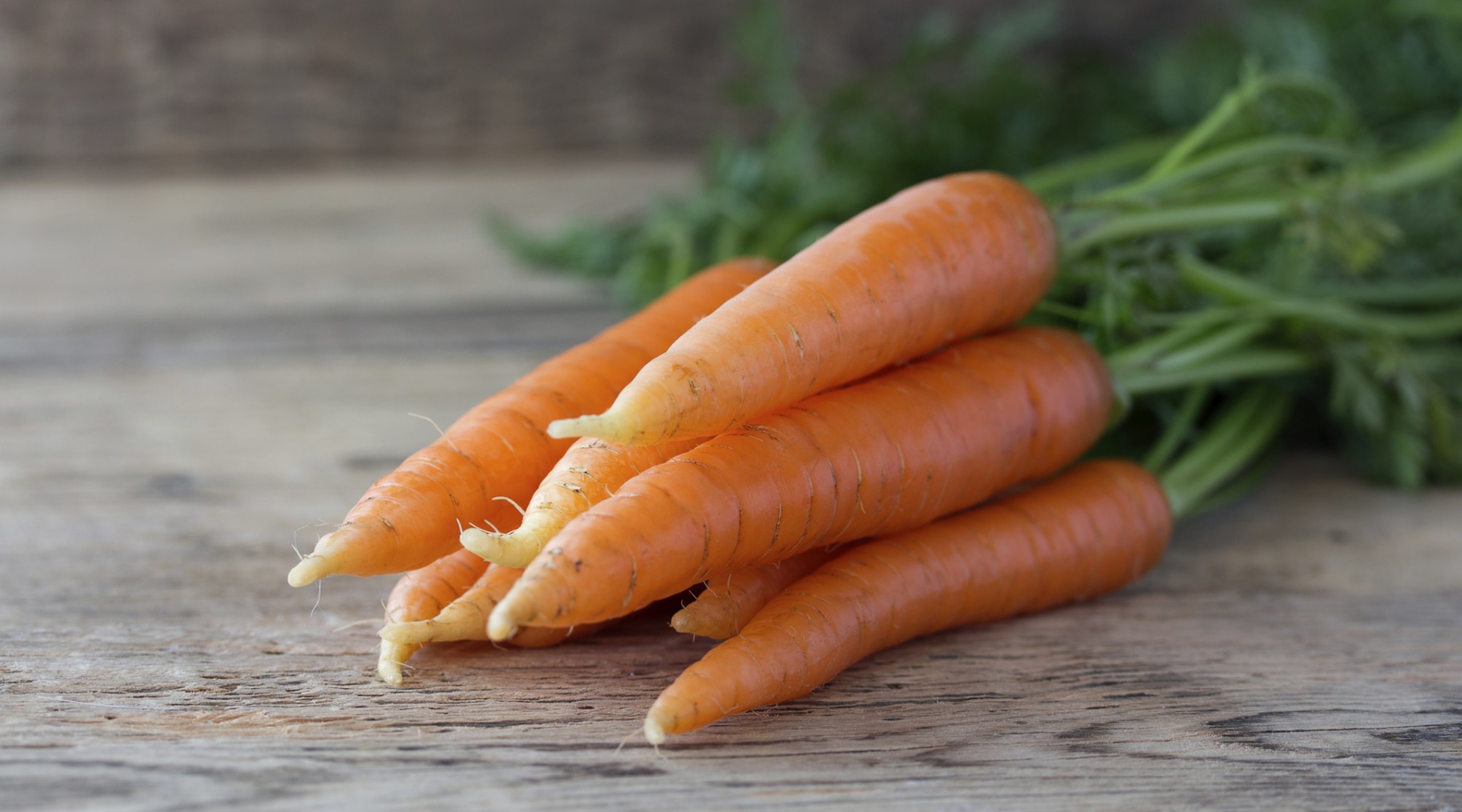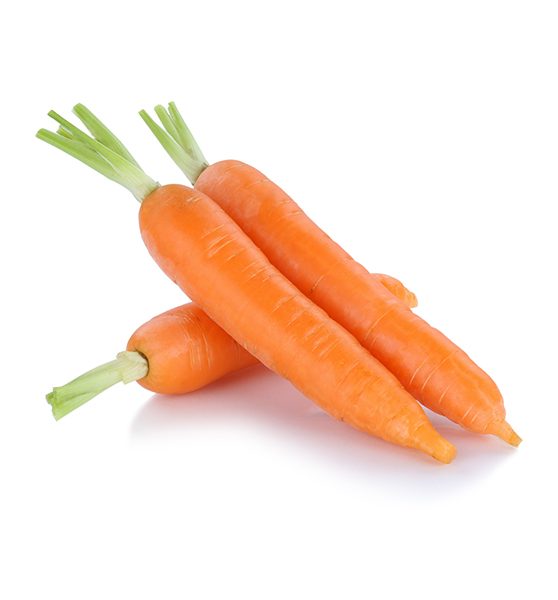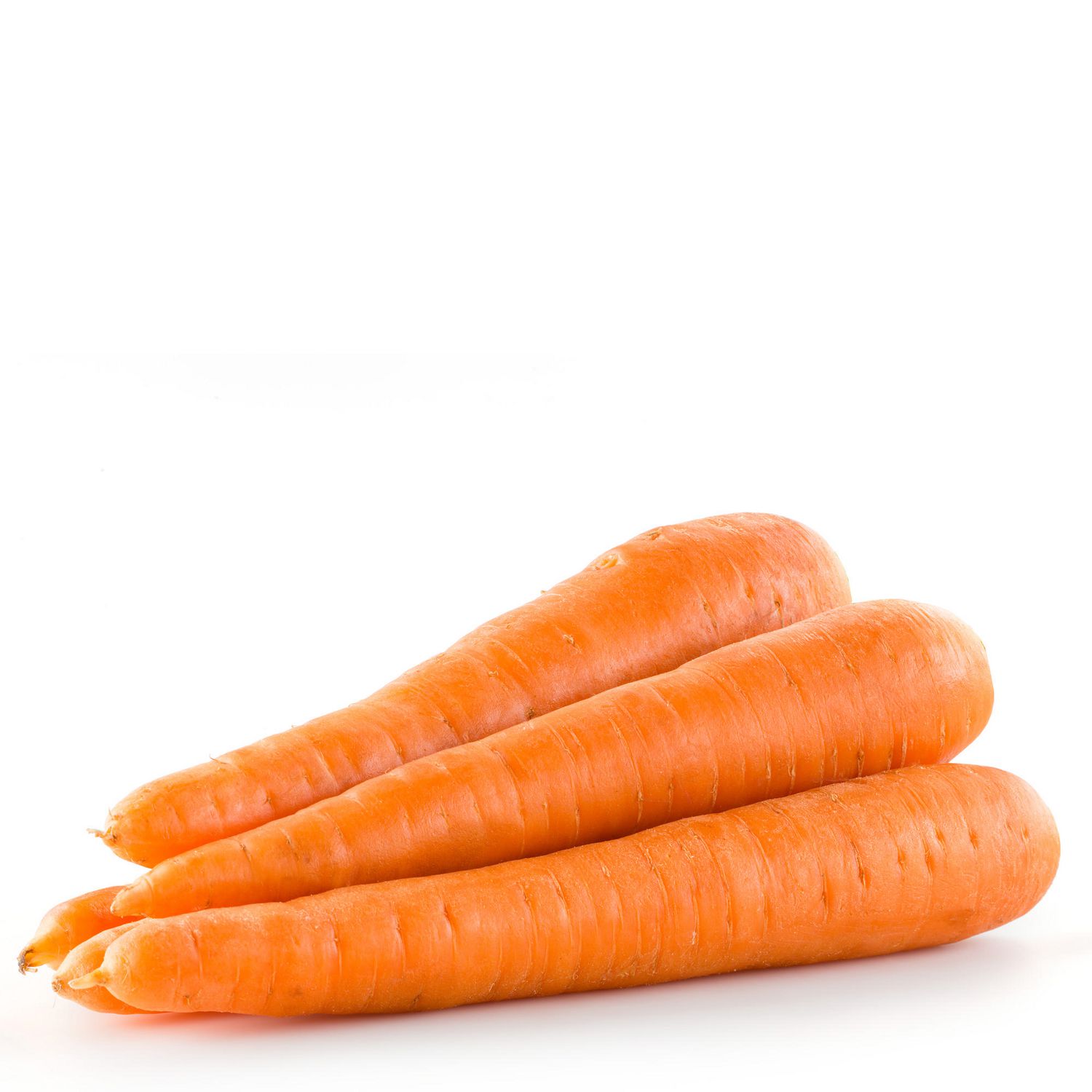
noun
- a plant, Daucus carota, of the parsley family, having pinnately decompound leaves and umbels of small white or yellow flowers, in its wild form a widespread, familiar weed, and in cultivation valued for its edible root.
- the nutritious, orange to yellow root of this plant, eaten raw or cooked.
- something hoped for or promised as a lure or incentive: To boost productivity, leaders hinted at the carrot of subsidized housing for the workers.Compare stick1(def 8).
verb (used with object)
- to treat (furs) with mercuric nitrate preparatory to felting.
noun
- an umbelliferous plant, Daucus carota sativa, with finely divided leaves and flat clusters of small white flowersSee also wild carrot
- the long tapering orange root of this plant, eaten as a vegetable
-
- something offered as a lure or incentive
- carrot and stickreward and punishment as methods of persuasion
1530s, from Middle French carrotte, from Latin carota, from Greek karoton “carrot,” probably from PIE *kre-, from root *ker- “horn, head” (see horn (n.)); so called for its horn-like shape.
Originally white-rooted and a medicinal plant to the ancients, who used it as an aphrodisiac and to prevent poisoning. Not entirely distinguished from parsnips in ancient times. Reintroduced in Europe by Arabs c.1100. The orange carrot, which existed perhaps as early as 6c., probably began as a mutation of the Asian purple carrot and was cultivated into the modern edible plant 16c.-17c. in the Netherlands. Thus the word is used as a color name but not before 1670s in English, originally of red hair.
 Liberal Dictionary English Dictionary
Liberal Dictionary English Dictionary

